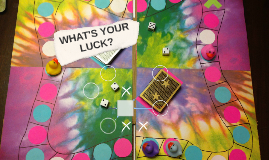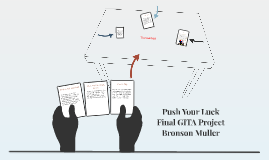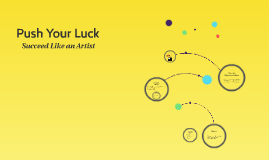Press Your Neo-Freudian Luck
Transcript: 10 Who were the major Neo-Freudians and what made them neo-Freudian? 10 This man's break from Freud's Psychoanalytic Society was perhaps the most disappointing for Freud. Although serving as the society's first president, he resigned from the organization in 1914 after intense disagreements with his mentor. Can you name him? The main disagreement Jung had with Freud was his belief that there was more to the unconscious than Freud theorized. Jung believed that there were fears, behaviors, and thoughts that children and adults exhibit that are remarkably similar across time and culture. He believed that this was more than coincidence and represented what he called the collective unconscious. 10 In 1912, this person founded the Society of Individual Psychology. Their theory suggested that every person has a sense of inferiority and referred to this as 'striving for superiority'. This person believed this drive was the motivating force behind human behaviors, emotions and thoughts. Who was this person? After serving as President of the Vienna Psychoanalytic Society, Adler eventually departed due in part to his disagreements with some of Freud's theories. While Adler had played a key role in the development of psychoanalysis, he was also one of the first major figures to break away to form his own school of thought. He was quick to point out that while he had been a colleague of Freud's, he was in no way a disciple of the famous Austrian psychiatrist. 50 A paitient of Anna Freud's who paid her $7 per month. Her analysis gave him self-awareness and led him to not fear being himself. Afterwards, he changed his last name, which was Homberger. Who was he? 50 This person made significant contributions to humanism, self-psychology, psychoanalysis, and feminine psychology. This person also believed that people were able to act as their own therapists, emphasizing the personal role each person has in their own mental health and encouraging self-analysis and self-help. While Horney followed much of Sigmund Freud's theory, she disagreed with his views on female psychology. She rejected his concept of penis envy, declaring it to be both inaccurate and demeaning to women. Horney instead proposed the concept of womb envy in which men experience feelings of inferiority because they cannot give birth to children. 100 His criticisms of Sigmund Freud's theories began to put him at odds with other psychoanalysts, and in 1944 the New York Psychoanalytic Institute suspended him from supervising students for this reason. For 100 m&m's , can you name this man? While Freud had an early influence on him, Fromm later became part of the neo-Freudians. Fromm was critical of many of Freud's ideas including the Oedipus complex, the life and death instincts and the libido theory. Fromm believed that society and culture also played a significant role in individual human development. Fromm also had a major influence on humanistic psychology. Life, Fromm believed, was a contradiction, since humans are both part of nature and separate from it. From this conflict arises basic existential needs including relatedness, creativity, rootedness, identity and a frame of orientation. Personality 8th edition - Jerry M. Burger http://psychology.about.com/od/psychoanalytictheories/f/neo-freudian.htm Personality Class - Jessica Martin Erich Fromm References Erik Erikson Erich Fromm Alfred Adler Karen Horney Carl Jung ERIK ERICKSON KAREN HORNEY Hosted By Jeff Pickens NEO-FREUDIAN INVERTED PYRAMID OF JEOPARDY !! While Freud’s theory had focused on the psychosexual aspects of development, Erikson’s addition of other aspects, like cultural, environmental, and social influences, helped to broaden and expand psychoanalytic theory. He also contributed to our understanding of personality as it is developed and shaped over the course of the lifespan. Alfred Adler CARL JUNG

















